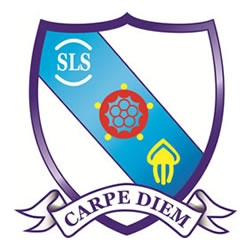
Organisation: Feltham Community College
Intervention: Catch Up® Literacy
Submitted by: Heather Casey
Background
Feltham Community College is a large secondary school with specialist sports status. Half of the intake is from minority ethnic backgrounds and a third is on the SEN register. A high proportion of students are in receipt of free school meals.
Several interventions to address literacy weaknesses are in place but, when we first heard of the success of Catch Up® via the LEA, we were looking for another approach to address the needs of those Year 8 and 9 students whose reading ages had not increased significantly despite support. We had heard of the success of Catch Up® in primary schools and were encouraged by the results and the format of the intervention.
Implementation
All students are tested on entry to FCC and at the end of each academic year, using NFER GRTII and Single Word Spelling Tests. It is these results, when analysed along with the reviewing of progress in relation to individual targets, which are initially used to identify students for whom Catch Up® might be the appropriate intervention.
On selection for the intervention, a letter detailing the Catch Up® Literacy scheme and why his/her child has been selected, is sent out to guardians. Students are spoken to individually and the structure and aims of the programme and the reasons for their selection are explained to him/her. Students are then timetabled for two Catch Up® sessions per week. Where possible, student and tutor are matched depending on the wider needs of the student and the experience and expertise of the tutor. The timetable is emailed to all staff so that they are aware of what support a student is receiving and can encourage him/her in this. Students are assessed initially using the Catch Up® materials and as the programme progresses, they are assessed formatively and this is communicated to the co-ordinator. Concerns are discussed and suggestions made to maximise the effectiveness of the programme.
Teaching assistants have a timetabled prep period to ensure thorough preparation of the text beforehand. Delivery of the programme is monitored via observations by the co-ordinator using the Catch Up® observation proformas and subsequent feedback sessions. At the end of the allotted time, students are reassessed using both the Catch Up® materials and NFER GRT II.
Six teaching assistants and two teachers were initially trained and seven of these staff are still successfully delivering Catch Up® Literacy to date.
Case Study 1 - Catch Up® Literacy
Child X is in Year 8 and has had withdrawal support for literacy, but there has been a disparity between his rate of progress in writing and that of reading, despite his eagerness to achieve. Consequently, Child X was identified as someone likely to benefit from Catch Up®.
On initial assessment, he did well decoding familiar whole words but was uncertain of some isolated phonemes and blending, which made accessing unfamiliar language difficult. His view of reading was quite negative. Child X was 12 years and 3 months at the start of the intervention, with a reading age of 8 years and 9 months.
The sessions allowed us to focus on certain areas of difficulty in context. It soon became evident that specific inferential skills were also quite weak and we were able to target these via discussion. By the end of the programme, Child X was much more confident and said that he could volunteer to read aloud and help others too.
His end of intervention assessment indicated a positive impact, with a reading age of 10 years and 8 months - a gain of 1 year 11 months.
Aims
“for an environment which enables and encourages all members of the community to reach out for excellence.”